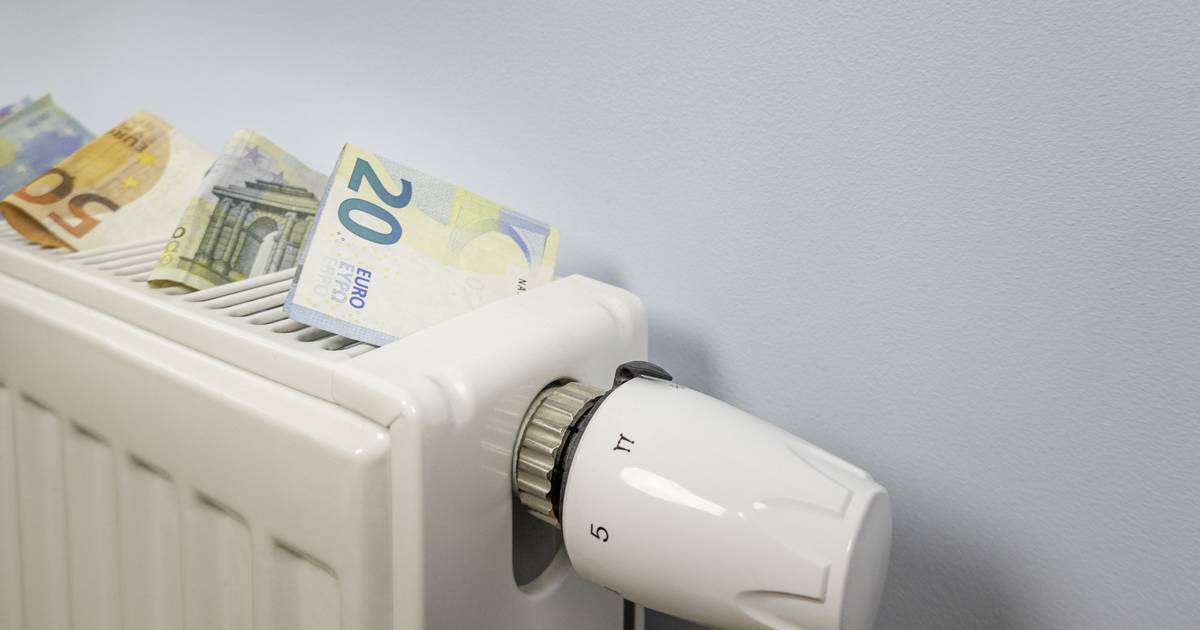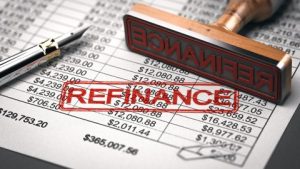
Winter is coming. Yes, we know that we are still in the middle of summer — although some people would have you believe that today marks the beginning of Autumn — but with the Galway Races already upon us, we won’t know it ‘til Christmas.
And this Christmas and the winter that comes before and after it will present us with challenges we have not experienced for generations with the cost of living soaring and inflation now dangerously close to double digits. We have seen energy prices increase by over 50 per cent with more increases likely and the possibility of electricity and gas rationing now on the table too.
The price of fuel on forecourts continues to go through the roof — remember when our biggest fear was that a litre of petrol or diesel would breach the €2 mark.
[ A shock €3,500 Apple app bill — plus some hair-raising gas and electricity invoices ]
And with the European Central Bank’s interest rates now firmly on an upward spiral — a spiral which could end up costing hundreds of thousands of Irish mortgage holders well over €1,000 over the course of the next 12 months, money is going to be tight in many households.
While there is gloom and uncertainty at every turn, we are not without options and there are still things that we can all do to stop the gloom settling to heavily on our shoulders.
1. We have said it before and we will say it again. If you haven’t done it in the last 12 months switch your energy provider now. It is the easiest money you will save this year. You don’t have to even call anyone. The people at bonkers.ie or switcher.ie — both of which have the approval of the Commission for the Regulation of Utilities — will do all the heavy lifting and you could have it done in 20 minutes this evening while watching the telly. Pricewatch did it a few months ago — on the basis that we should practice what we preach — and we knocked a grand off our annual outgoings in the length of time it takes to watch an episode of Only Murders In The Building.
2. If you haven’t had your attic insulated in donkey’s years, it might be worth getting it topped up — grants of up to 80 per cent could take much of the sting out of doing it and you’d be amazed at how much better the technology is today compared to the 1980s. Getting a decent job done on it in the weeks ahead could see your energy costs over the winter ahead fall by well over €100 and it will be better for the environment too.
3. There is even a way to knock a bit of craic out of energy savings — although we have to stress it is only a bit of craic! Borrow a Home Energy Saving Kit from your local library — they are freely available in 100 such places around the country — and use it to work out how and where most of the energy in your house is used and where the heat is leaking out of your house.
4. Make some energy resolutions for the winter ahead and if you are struggling to think of any we have you covered. Never heat an empty house — so turn off the heat half an hour before you are due to leave and don’ turn it on until you return — or if you like to come home to a warmer house, get a heating control device such as a Nest which allows you to control your thermostat from far away so you can turn your heat back on when you are 30 minutes from home. Don’t light rooms unless you are in them; turn the thermostat down by just one degree — that could see your energy bill fall by between 3 and 10 per cent; — don’t be wandering around your house in shorts and t-shirts in the dead of winter and then cranking up the heat to stave off the cold, stick on an extra jumper; wait until your washing machines and dishwasher are full before running them, and run them on the eco-setting; if there are no eco setting wash your clothes at 30 degrees instead of the default (believe us you won’t know the difference); don’t leave any electrical goods on standby; and spend just a minute less in the shower every morning. You might think none of these things on their own will make much difference to your finances (and you might even be right) but added together they do and if you could reduce your energy consumption by 20 per cent you could save yourself over €500 over the course of the next 12 months.
5. ‘Spend nothing days’ are not a luxury but an absolute necessity for many people. But the concept is something that should be embraced by more people. Set aside one or two days ever week and resolve to spend nothing on those days — that means no visits to the shops or the cafes or the pub or whatever it is that normally takes your fancy. If you simply stopped spending so much as a cent on two days every week, that would amount to almost one third of the year ahead.
6. Remember when we were dreading the idea of a litre of petrol or diesel crossing the €2 threshold? Well, it has well and truly crossed that particular Rubicon across most Irish forecourts in recent weeks and with the volatility of global energy markets even worse now than it was in the spring, the chances of fuel hitting €2.50 a litre have never been greater. Obviously the way to save the most money on transport is not to use them. If you could reduce the amount of time you used your car by 20 per cent — by walking or cycling maybe — then you will knock €250 off your annual costs.
7. But when you are in your car you can still save money buy shopping around — virtually — for the cheapest fuel in your area on pumps.ie.
[ Pricewatch: How we’ve learned to love own-brand products ]
8. Drive better to make better savings. That means do not over-rev your engine — you are at a red light in Phibsborough not on the starting line at the Monaco Grand Prix — drive in the right gear and keep your boot empty. Keep tyres at the right pressure, get the car serviced, do not use air conditioning and if you have a roof racks or roof box and are not using it, take it off.
9. Shop around for car, home and health insurance and look at taking on small excesses if it brings the price down — although do make sure that if you are taking on excesses that work for you. There is no point in taking on a big excess for a hospital stay if the likelihood is you will need to stay in a hospital next week for example so think about your own personal circumstances before making any rash decisions on that score. But if you are in good shape a small excess could reduce your costs by anything from €500 to €1,000 a year depending on the plan held. These excess are mostly per claim, not per night and they only apply to private hospital admissions.
10. Always claim all the tax relief that is due for health and medical expenses and non-routine dental expenses. It could see you getting 20 per cent back on substantial sums.
11. While the banks have made much about the increased number switching their mortgages in recent months, the switching market remains tiny. The savings, however, are anything but tiny. And depending on what stage you are at in your mortgage repayments, you could make big savings by moving from one of the dearest lenders on the market to one of the cheapest. There are just over 740,000 households in Ireland with a mortgage, with an estimated 220,000 of those on standard variable rates of up to 4.5 per cent. A recent Central Bank review of mortgage-switching activity found that 61 per cent of eligible switchers could save over €10,000 but that 13 per cent stand to gain over €30,000 in present-value terms.
12. While food prices have been skyrocketing, hitting the household finances of many people very hard, there are options on the table for some shoppers although we know many will have wrung all the savings out of their weekly shop that it is possible to wring. It sounds obvious but only buy what you need — Irish households throw away as much as €700 each year simply because they overbuy.
13. Experiment more with own-brand. While we have come a long way over the last 20 years and seen the amount of own-brand products in our trolleys jump from less than 10 per cent back then to more than 50 per cent today, there are still more savings to be made. The good news is that a lot of small Irish producers make a lot of own-brand products for all the big retailers in Ireland and the quality keeps getting better and better.
14. While this page has long been a convert to own-brand products, we’re not saying they are all lovely; there is some awful own-brand stuff but there is also some very high-quality stuff that typically sells for 30 per cent less than the branded equivalent. If you could increase your own-brand savings by just €5 a week, you’d be better off by the tune of €260 by this time next year.
15. While special offers are fast disappearing from our supermarket shelves as retailers seek ways to offset the rising cost of food production, there are still some deals out there. But approach them with caution and do not bulk buy perishables simply because they are on special. A lot of bulk buys are on special because retailers don’t want to have to throw the stuff out … don’t be the mug who buys it and then ends up throwing it out.
16. Speaking of special offers, retailers have taken to linking their deals with membership of their loyalty schemes — Tesco, for instance, has started doing this in a big way since earlier this year. If you don’t have an objection to sharing your personal data and shopping habits with a retailer — and we know some people do — then sign up for all the schemes that you might use. Make sure to download the details to your smartphone rather than carrying cards around with you. And take advantage of every cent of savings that you can while bearing in mind the point about not bulk-buying perishables.
17. Make sure you know exactly what is in your presses, your fridge and your freezer and then make and list on that basis. Don’t write the list on a piece of paper — that is so 20th Century. Use the notes app on your phone and then delete each item as you chuck it into your trolley. Don’t deviate from the list.
18. Declutter your kitchen. Challenge yourself to use all the tins and frozen food in your house and make sure all your dried and tinned food is easily visible so you will know what you have to hand on any given day. The supercook.com allows you to enter whatever ingredients you have to hand to allow it to come up with recipes based on what you have rather than what you might need to buy.
19. Don’t automatically take a trolley or even a basket. If you only want two or three things, just go in, pick them up and then leave. When you have a trolley you will inevitably put more into it than you might want or need.
20. Be freezer smart and if a product in your kitchen is about to pass its use-by date stick it in the freezer — but don’t just let it grow cold there. Label it and use it within a week or so to stop your freezer becoming overrun with half eaten sliced pans and mysterious blobs on unappetising looking permafrost.
21. Shopping locally can save you money particularly if you make friends with your local butcher, baker or greengrocer. Not only can you buy exactly what your need rather than over-buying you can also get the best value cheap cuts of meat plus tips on how you can cook it. And if they are sound they will always give you the best of deals.
22. Eat more pulses and grains. We cannot stress the good value to be found there. Chick peas, beans and lentils are incredibly cheap — particularly if you go the own brand route — and a couple of tins added to some garlic, onions and a tin of tomatoes and some rice and you can feed a family of found a decent and hearty stew for no more than a fiver. You probably wouldn’t want to eat it every day of the week but make it a regular in your house and you will save money.
23. Supermarkets all over the country discount a huge amount of stock every single day because it has reached its sell-by or use-by date. While searching for this may seem cheap — there is no shame in actively seeking out these shops at exactly the right time — the two-hour window before closing is what you are looking for. Buy the meat, bread, ready meals, and dairy that is marked down and then stick it in the freezer and use it when it suits you. Or if it is something that has a best before day that has just past you can probably just eat it. It might be before today but it is likely to be only marginally less good tomorrow.
24. Carry out an audit on yourself. Devote a couple of hours to poring over your bank and credit card statements online to see where your money is going. If you spot fees for any subscription services that you are not using or using only very rarely than cancel it. You’d be surprised how gratifying this is. Sometimes the very act of threatening to cancel a service or switch from one provider to another will prompt the supplier to offer you a discount just to keep you on board.
25. We know that all the switching and swapping and going through your bank statements like some class of forensic financial investigator and a commonly heard refrain is ‘I just don’t have the time for that messing’. Switching mortgages sounds like a right pain, for example while no one in their right mind will choose to spend an hour listening to the appalling hold music chosen by an electricity or gas provider. But here’s the thing — if someone offered you a grand for a day’s work you’d probably bite their hand off. That is the way to view it. Set aside a day or two days in a particular week to do everything. Take annual leave or days due from work if necessary to make all the calls and collect all the paperwork. Using a mortgage broker for the switching of a home loan, for example, means they do all the leg work and you make all the savings, the same is true when it comes to the price comparison and switching websites for utilities and for health insurance.




